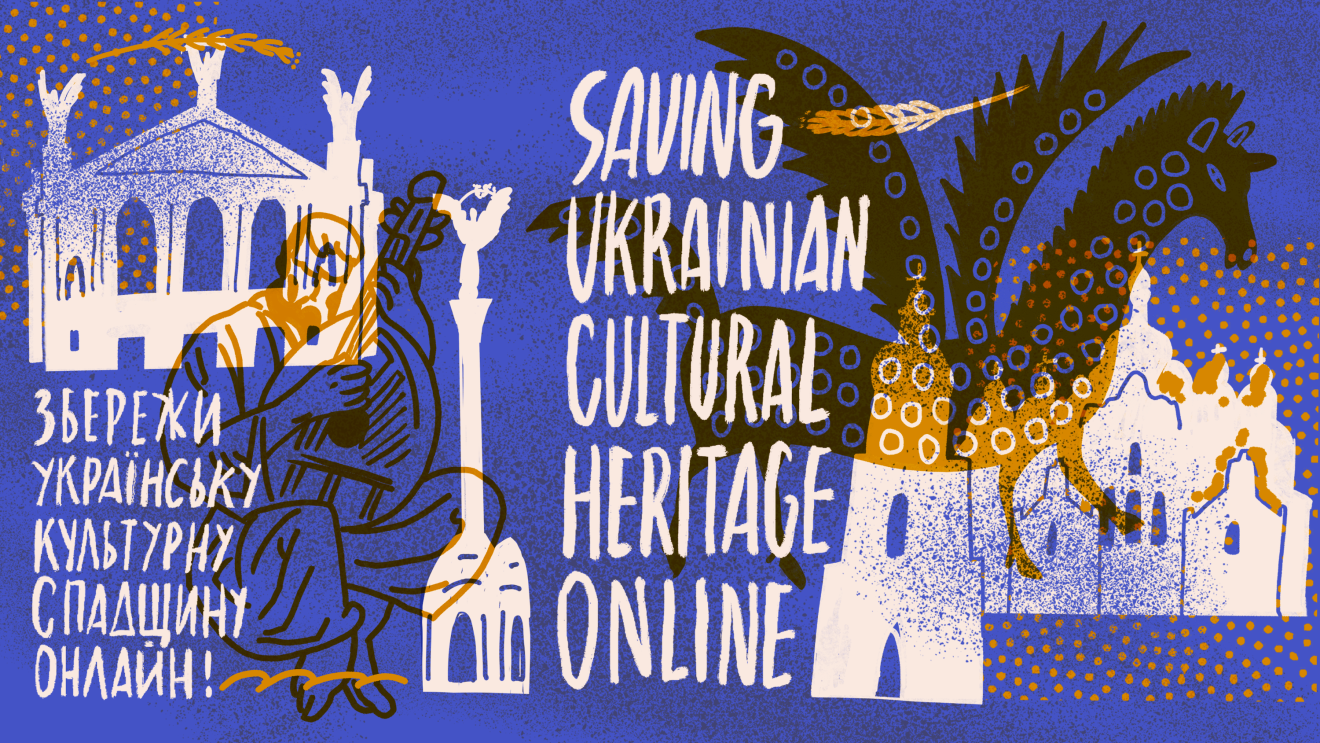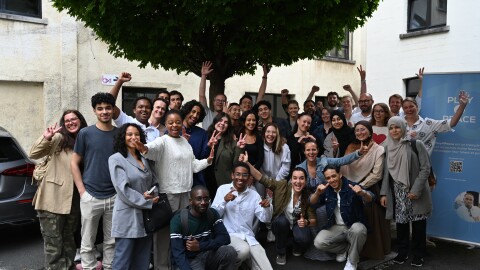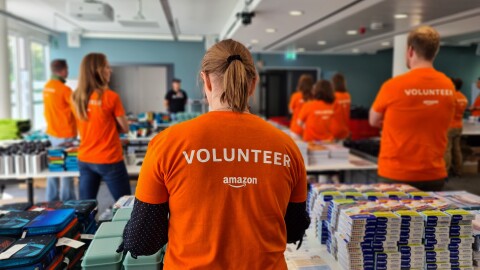Volunteer librarians, archivists, researchers, and developers are working together around the world to support Ukraine by preserving its digital history. Saving Ukrainian Cultural Heritage Online (SUCHO) was founded days after the conflict began, with a mission to identify and archive irreplaceable data and content from Ukrainian cultural heritage websites. To help accelerate the work, Amazon Web Services (AWS) joined the effort.
Realizing that most cultural websites were hosted in physical locations in Ukraine that could come under attack, co-organizers Sebastian Majstorovic from the Austrian Centre for Digital Humanities and Cultural Heritage, Quinn Dombrowski from Stanford University, and Anna Kijas from Tufts University devised a way to quickly capture and archive these important digital assets. They formed the nonprofit SUCHO collective and rapidly enlisted and trained more than a thousand global volunteers. The team began using the open-source web archiving tool Webrecorder to replicate the website data of thousands of Ukrainian museums, libraries, digitized collections, and exhibits. In their work, the SUCHO team has saved important cultural assets such as scanned historical documents, audio recordings, scientific articles, and digitized artworks.

As a grassroots project, SUCHO initially operated on a network of their volunteers’ personal computers. AWS worked with SUCHO and Webrecorder to use services like Amazon Elastic Kubernetes Service (Amazon EKS) and AWS Fargate to scale up the web archiving process in the AWS Cloud. So far, the project has archived more than 25 terabytes of data from over 3,000 websites, with many of the websites going offline shortly after SUCHO was able to back them up.
“Due to AWS’s support, we were able to quickly scale up and enable our volunteers to capture and preserve many important digital artifacts, saving thousands of cultural heritage sites from extinction,” said Majstorovic. “Technology can empower volunteers in crisis relief efforts. Preserving historical data from sites like the National Chernobyl Museum and the State Archive of Kharkiv is just one example. We sincerely hope that most of the backups we produce will never be needed, but we are going to continue to archive as much digitized Ukrainian heritage as we can, just in case.”
Starting today, the growing SUCHO web archive is available by the AWS Open Data Sponsorship Program, which covers the cost of storage for publicly available, high-value, cloud-optimized datasets. Details on accessing the archive can be found at the Registry of Open Data on AWS.
AWS recently committed $15 million in cloud computing credits, and technical expertise, to help organizations like SUCHO. We will continue to support local and global nonprofit, government, and commercial customers who request assistance to address this humanitarian crisis.
Learn more about what Amazon is doing to support people in Ukraine.












